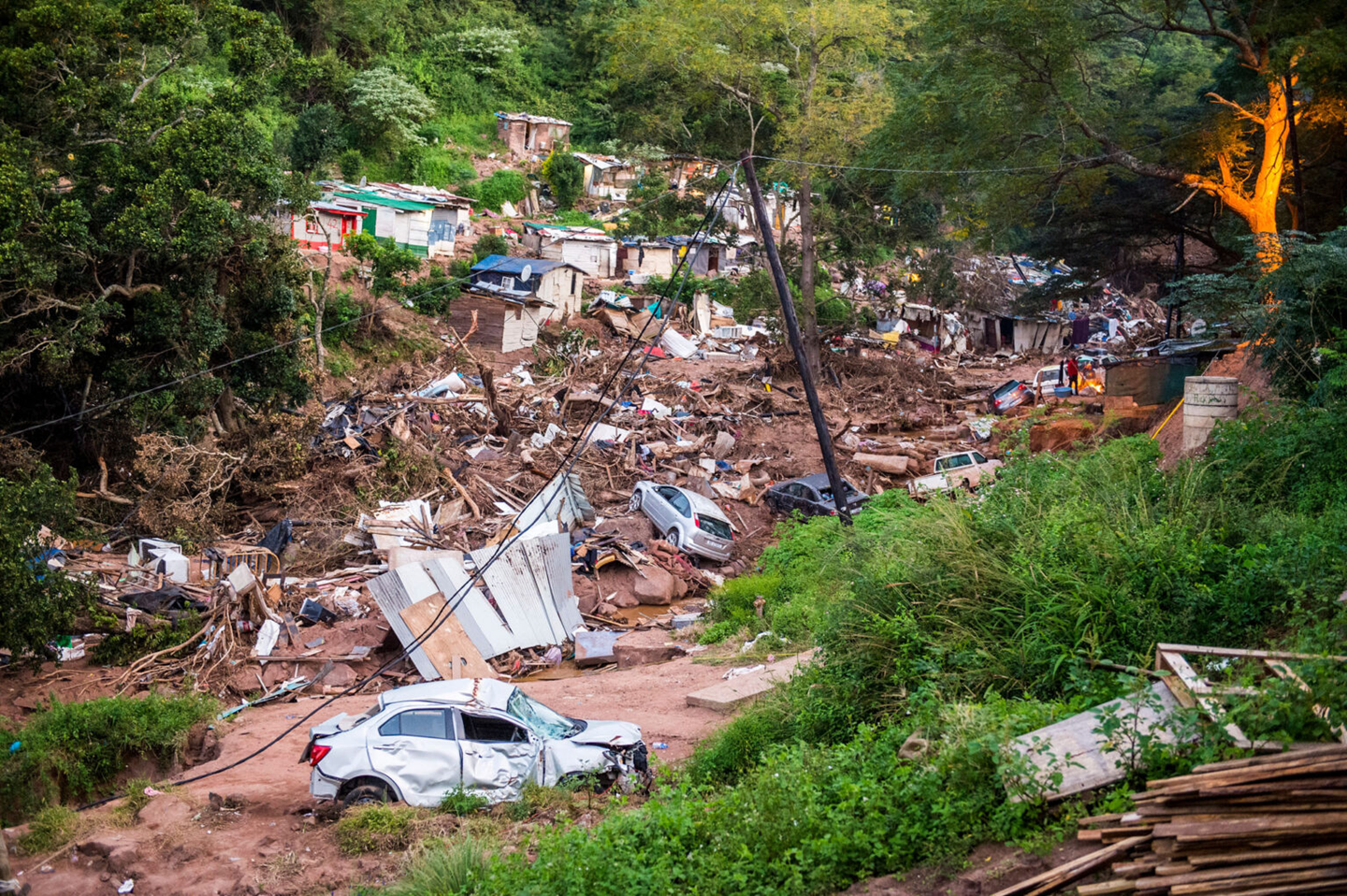
In April 2022, devastating floods tore through KwaZulu-Natal, a province in South Africa, destroying homes, lives and livelihoods. For many families, the storm never really ended.
Today, three years later, thousands are still living in temporary shelters, a daily reminder of how climate change doesn’t just wash away houses, but health, dignity, and hope.
Research on the mental health impacts of climate change in Africa, despite being among the most vulnerable places on the planet, remains scant, which is not altogether unsurprising. As WEMA’s principal investigator Prof Collins Iwuji notes: “In some African settings, people don’t even talk about mental illness. It’s a stigmatising issue, so no one wants to admit it, even though we know it is there. Some languages don’t have certain mental health diagnoses. Like, how do you say ‘post-traumatic stress disorder’(PTSD) in the local language of isiZulu?”
This feature written by WEMA’s media partner Bhekisisa, looks at how extreme weather events impact the mental health of vulnerable populations.
This compelling piece was picked up by leading media platforms Times Live and Daily Maverick.
Read the full story here: https://bhekisisa.org/special-reports/climate-change/2025-09-22-the-falling-down-place/
You can also access it in the following publications:
Times Live - https://www.timeslive.co.za/sunday-times-daily/news/2025-09-23-the-falling-down-place/
Daily Maverick - https://www.dailymaverick.co.za/article/2025-09-23-inandas-healing-landscape-still-hides-deep-trauma-after-devastating-floods/
Business Live (News and Fox) - https://www.businesslive.co.za/fm/fm-fox/2025-09-23-the-falling-down-place/
Image credit: Delwyn Verasamy